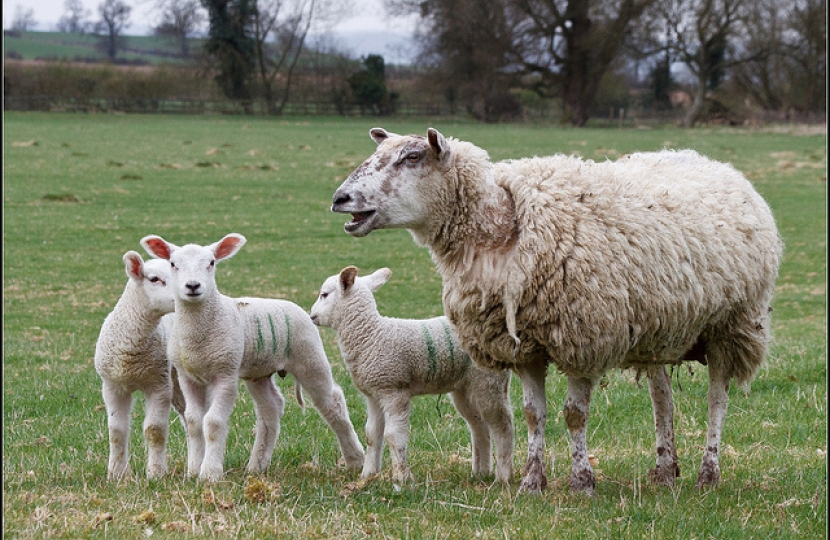
Original by Andrew Forgrave, Daily Post - http://www.dailypost.co.uk/news/local-news/operation-flock-pledges-zero…
Operation Flock pledges zero tolerance approach to sheep attacks in North Wales
North Wales rural crime team launches new awareness campaign to stem the tide of sheep attacks in the region
A new police offensive against dog attacks on sheep has been launched in the run-up to this year’s main lambing season in North Wales.
Operation Flock is a social media-driven campaign that aims to alter behaviour patterns amongst dog owners.
A new “heat map” showing the location of attacks in the region has been released which shows that most incidents occur not in isolated rural areas but close to built-up areas.
Statistics gathered by the rural crime team at North Wales Police indicate that dog attacks escalate towards the peak lambing season, and this has prompted an inaugural awareness campaign.
Its launch precedes a meeting in London this month of a police-led working group that is drawing up plans for a revision of the 1953 Dogs (Protection of Livestock) Act.
Team leader Rob Taylor said that despite the attention given to the issue in recent years, the number of sheep attacks had remained stubbornly high.
He added: “Fines have been increased, we’re issuing more restriction/banning orders and more dogs are being destroyed (by court order), and yet we continue to see incidents – or multiple incidents – on a weekly basis.
“Part of this may be due to improved reporting, reflecting the confidence farmers have that we are treating this issue seriously.
“I now believe we are getting an accurate picture of the situation in North Wales and that, within 12 months to two years, we will see a reduction in incidents.”
Over the past three years there have been more than 300 incidents in North Wales resulting in the loss of over 1,000 sheep.
Dogs attacks have also been reported on other animals too, including feral goats on the Great Orme, Llandudno.
A 2016 study by the National Sheep Association revealed the scale of depression that sheep attacks caused livestock farmers, a quarter of whom have contemplated quitting rather that face the sight of more badly mauled animals.
Rob Taylor said the new heat map of incidents revealed the close relationship between sheep attacks and where people live.
“There are two key aims of this campaign,” he said.
“One is the obvious need to remind dog owners to keep their dogs in a lead when near livestock.
“The other is to encourage people to be more aware of what their dog is doing when they are out at work or away from the home.
“A majority of attacks are caused by dogs that have escaped from gardens and yards.
“Once a dog has killed, it is likely to return to kill again, and in many cases their owners are unaware they have gone.”
A graphic example of a left-to-roam incident occurred on a farm in Buckley, Flintshire, where 30 sheep were attacked by a marauding Rottweiler.
The unaccompanied dog was shot by the farmer but it still managed to escape and the police were unable to trace it or its owner.
As acknowledged experts on farm crime, the North Wales rural crime team has been asked to advise a police-led working group on potential changes to the law.
It is seeking to ramp up fines, make it easier to obtain banning orders and remove a requirement that sheep must been killed on farmland for an offence to have taken place.
Janet said:
"I support this new offensive against sheep attacks"
"It is with much horror that I understand that over the last three years over 1,000 sheep have been lost: more than the size of many flocks!"
"I am confident that that this plan will be welcomed by many across Aberconwy, especially farmers. Indeed, the lambing season has begun for many.
